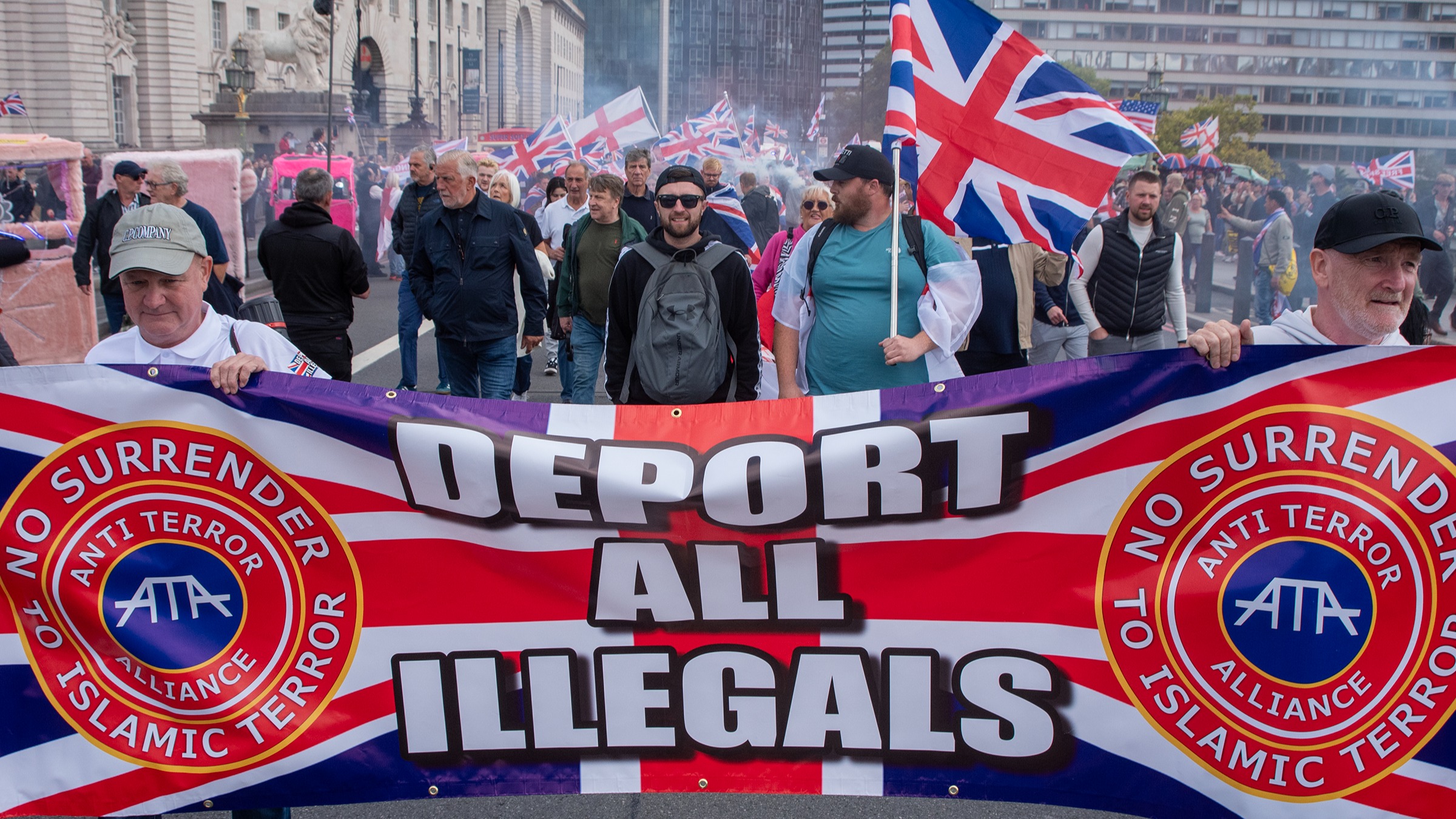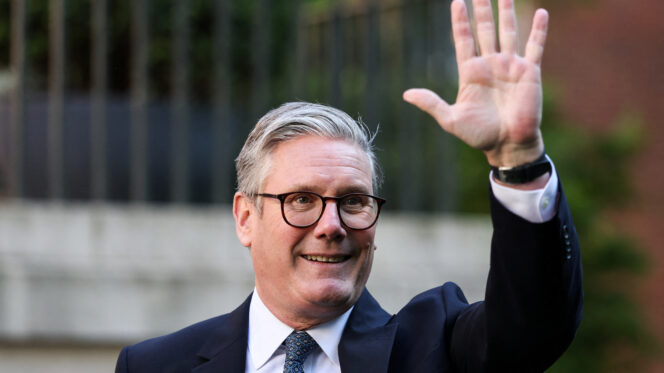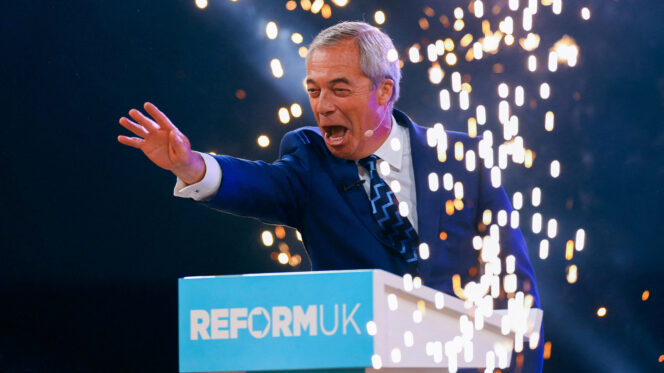The Mainstream Media Mafia Has Greased Britain’s Slide Towards Fascism
Don’t ask awkward questions.
by Phil McDuff
19 September 2025

On Saturday 13 September, we saw approximately 150,000 people march through London in support of fascism. Let us be clear about that. Even if there are people there who do not identify as fascists, it was a fascist march in support of a fascist ideology.
Liberal democracies are supposed to be insulated against outbreaks of blood and soil fascism, but our institutions seem to be incapable of a response to it.
On the TV sofas, the newspaper columns, in the proliferating podcast ecosystem, we can find plenty of speculation about how this happened, from economic stagnation and social media, to uncontrolled immigration and weak government.
These explanations are as partial as they are unsatisfying. Anyone who is at all familiar with the UK will look at these people, in the newspapers and on the TV screens, credulously wondering where all this came from, and ask the obvious question: “what about you guys?”
It is hardly surprising that the media would be reticent to point the finger at their own behaviour, but the hot-dog-guy memes all-but post themselves.
Nobody can believe that decades of headlines about bogus asylum seekers or small boats have had no impact on the cultural landscape of the country. Any analysis of the political situation in the UK that does not account for the media is so incomplete as to be useless. It’s like trying to figure out who’s been setting all these fires, but excluding “Bob the Local Arsonist” from your enquiries before you even begin.
Increasingly, from Tony Blair and Rupert Murdoch’s tempestuous bromance in the 2000s, to the rapid destruction of norms during the Corbyn crisis, the media-political environment in the UK has narrowed down to an incestuous, self-involved group of insiders, viciously cutting off moderating influences and talking themselves around to ever-more extreme and radical positions, which they they broadcast outwards at maximum volume.
And because the media and political classes have become so intertwined and dependent on each other, there exist few, if any, mechanisms to curtail this.
Despite the BBC and Labour being repeatedly targeted by the obsessives in the rightwing press, both these institutions have not simply failed to resist this constant rightwards push by the press, but conceded, normalised and laundered this politics of reaction and outrage.
Whether they believe it’s the only game in town, because they think they can use the press to bludgeon their own enemies, or because they themselves truly believe that small boats and political correctness are serious threats, they have totally adopted the consensus position.
There is a kind of omerta – a code of silence – around the whole sordid mess. While individuals such as Peter Mandelson or Boris Johnson may, occasionally, be nominated as scapegoats for particularly undeniable and embarrassing periods of malfeasance, there is to be no general criticism of the system which keeps everyone housed and fed.
Nobody can ask if the constant repeated assertions that our problems are caused by foreigners might contribute to people thinking problems are caused by foreigners. We do not have a media so much as a mafia. Don’t ask awkward questions, or get whacked.
The accusation of fascism is not made lightly or flippantly here. It is not that journalists are deliberately pushing a centrally agreed line, or that the editors are sneaking Mein Kampf into the sports pages.
Rather, it is an observation: the repeated pattern of press obsessions, manufactured outrages and moral panics, the characteristics of the public enemies they create and the villains they choose to redeem cultivate an environment in which the core beliefs of fascism can take root and easily flourish, while everything else is labelled the “loony left”, “political correctness”, or “wokery”, attacked and furiously stomped on if it looks like a threat.
Umberto Eco, who grew up under Mussolini, identified several characteristics of what he called “Ur-Fascism” – the common thread throughout the many varied global fascisms. Among the characteristics he describes are: obsession with tradition and lost national greatness; appeals to a frustrated middle class; exploiting a fear of difference and change.
Fascism is constantly seeing hidden plots against the nation by enemies who are both powerful and weak. It is elitist, in the sense of being contemptuous of weakness, obsessed with machismo and individual status, but it also rages against “intellectuals” and attacks academia. And it is populist in the sense of appealing to a mythical true People, while being intensely opposed to democracy if it doesn’t go their way.
It’s hard to read that list and not see all the rhymes and parallels with the core worldview of the British media-political elite. They may not have set out to deliberately create the idealised conditions for fascism to spread in the UK, but if they did want to do such a thing, it would be hard to find a better system for doing so than the one they’ve built.
It’s just unfortunate there are so few people left capable of pointing it out.
Phil McDuff is a commentator on class and politics based in the north-east.


